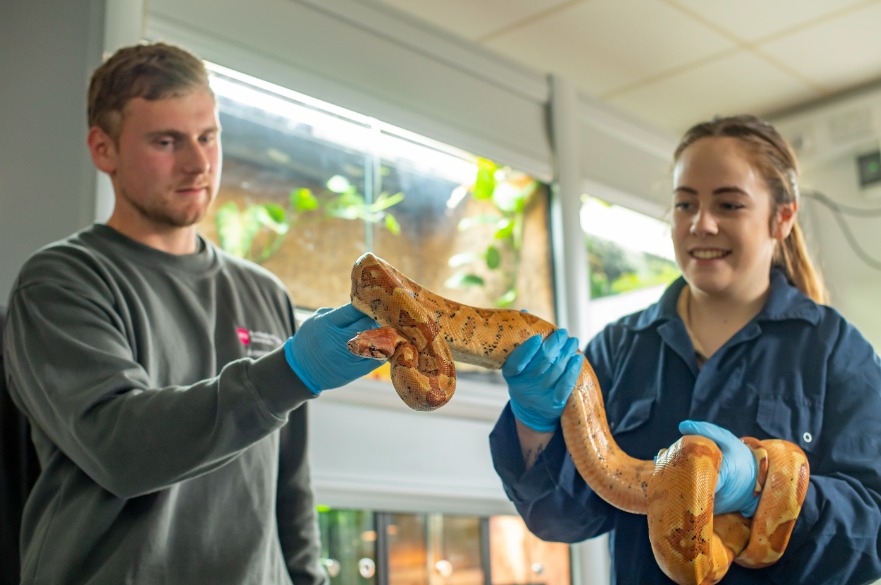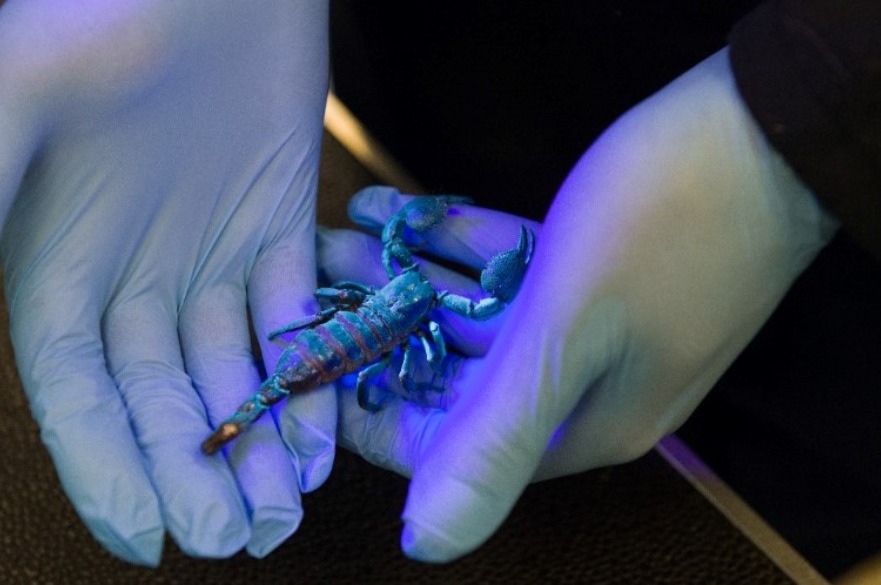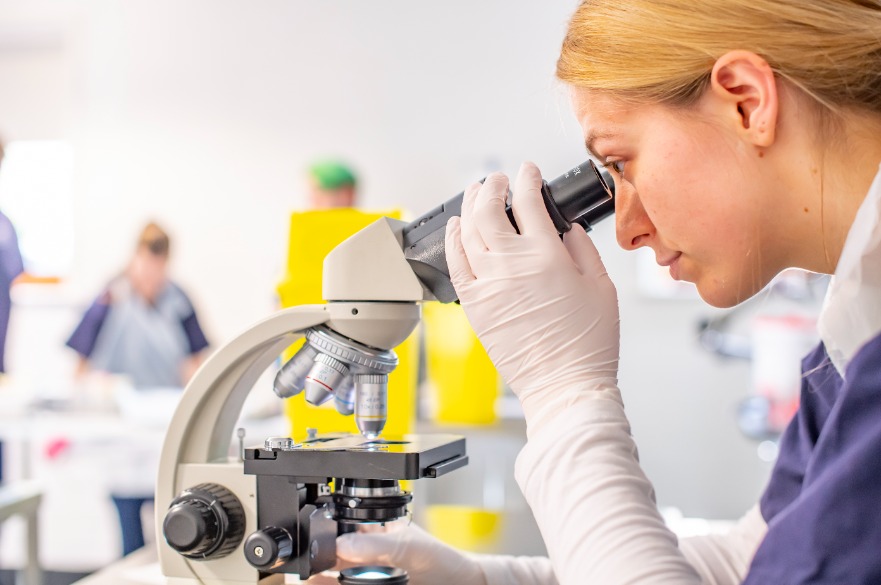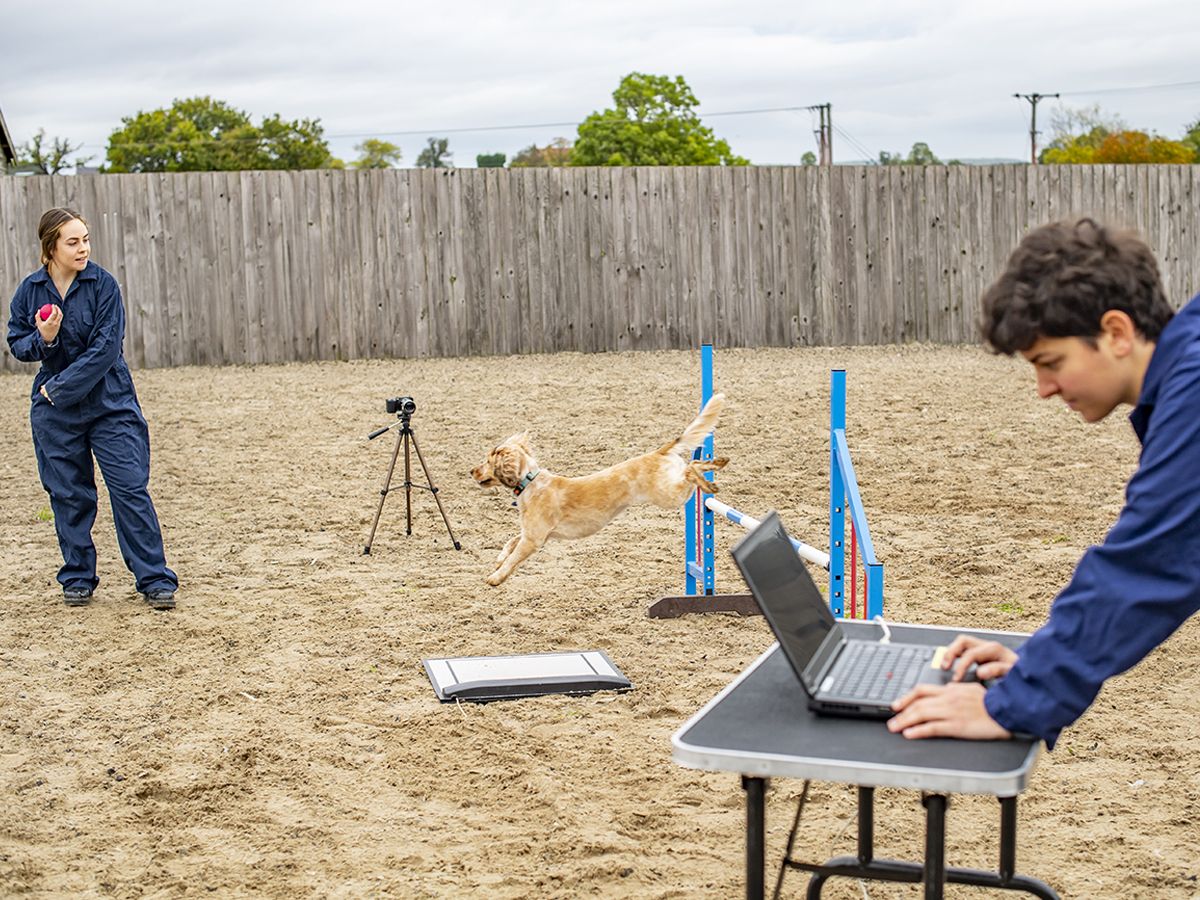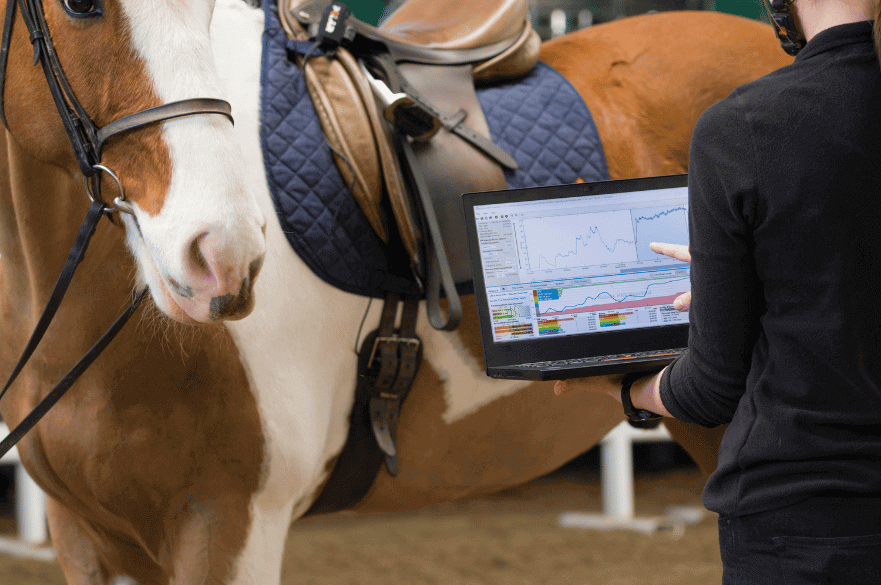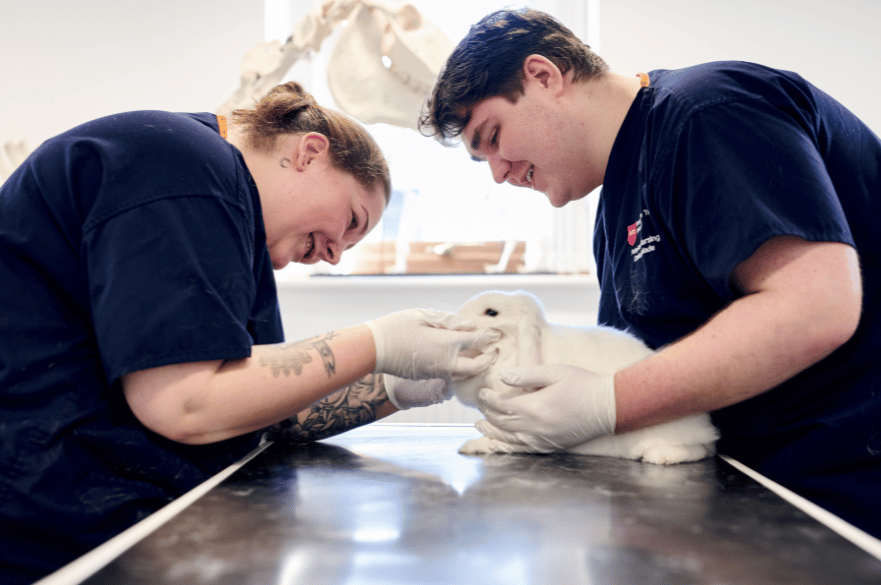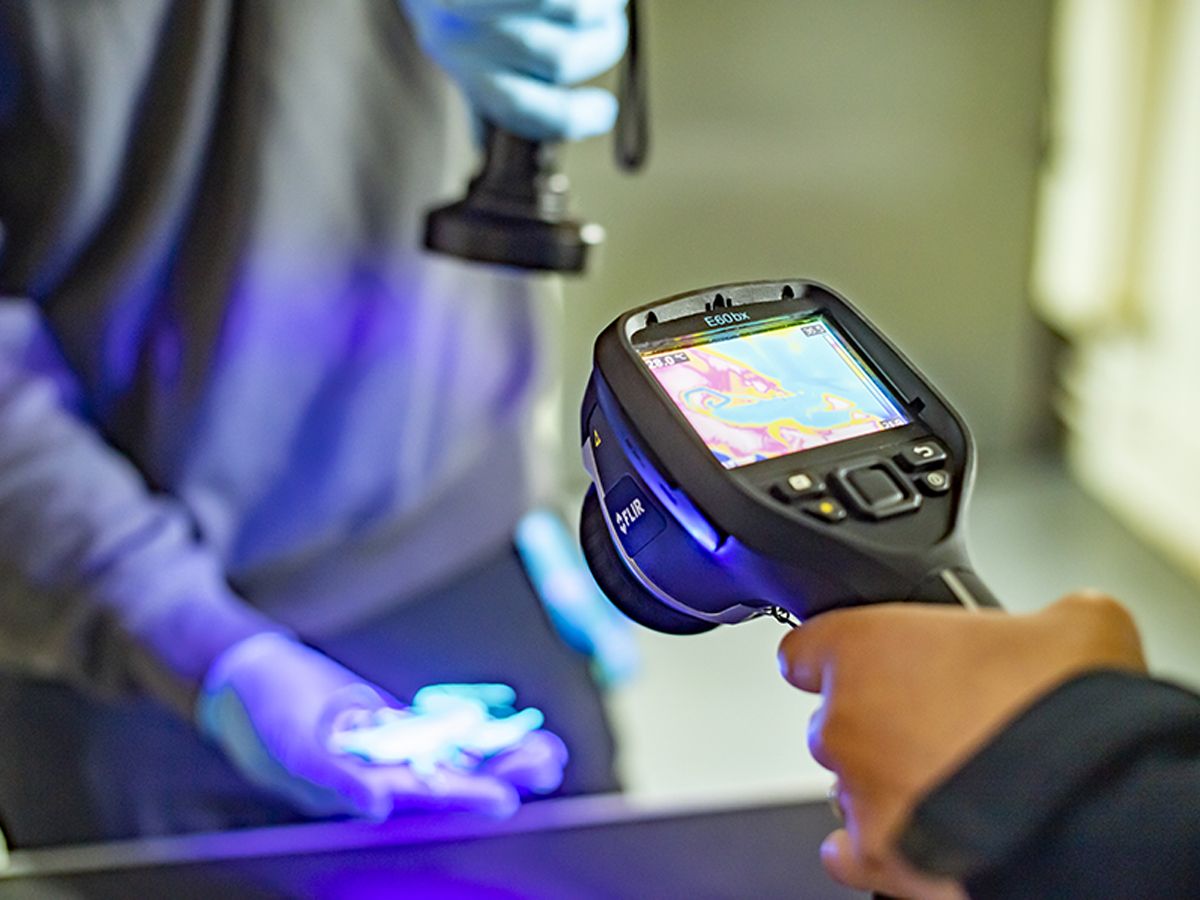This course is in Clearing
Offers from 56 tariff points
About this course
This course is an integrated foundation degree, where you'll progress onto our BSc (Hons) Zoo Biology course, once you successfully complete your foundation year.
Our integrated foundation degrees offer a unique gateway to our BSc courses for those who currently don't meet the degree-level entry criteria. The foundation year acts as a launch pad, supporting you with the transition to university learning. Anticipate a year filled with the development of robust study skills, increased confidence in tackling intricate problems, and the cultivation of independent learning. Rest assured, by the end of this transformative year, you'll emerge well-prepared for the exhilarating challenges that await you at degree level.
About the BSc course
This course represents a unique opportunity for you to study a wider range of species than those covered in traditional animal science degrees. Your learning will focus on the biology of exotic species, namely non-domestic and non-UK wildlife. Your lectures will cover major scientific principles, including anatomy and physiology, behaviour, genetics, ecology and nutrition. You’ll apply these principles to the management and conservation of zoo species.
Which course is right for you?
We offer four animal science degrees, each with a different focus:
- BSc (Hons) Zoo Biology / BSc (Hons) Zoo Biology (with foundation year) (this course) – focuses on captive housed zoo animals and exotic species.
- BSc (Hons) Animal Biology / BSc (Hons) Animal Biology (with foundation year) – focuses on managed domestic species such as companion, working and farm animals.
- BSc (Hons) Zoology / BSc (Hons) Zoology (with foundation year) – covers a diverse range of invertebrate and vertebrate species in relation to their biology, evolution, taxonomy and identification.
What you’ll study
This course will give you a sound knowledge and understanding of animal biology, with a particular focus on zoo species.
Your lectures will cover major scientific principles, including:
- anatomy
- physiology
- behaviour
- genetics
- ecology
- nutrition.
You will learn to apply these principles to:
- welfare
- breeding
- conservation
- management.
You will focus on the biology of exotic animals, namely non-domestic and non-UK wildlife and apply this to all aspects of management and species conservation of both captive and non-captive populations.
This is your foundation year. You'll study five modules and there's a detailed breakdown of what's included in each below.
Foundation Biology (20 credits)
Study fundamental biological concepts across various areas. You'll explore topics including the characteristics of living organisms, classification and taxonomy, cell structure, microbiology, genetics, and biological systems.
Laboratory Skills (20 credits)
Gain essential laboratory skills for biological and environmental sciences. Emphasizing good laboratory practice, health and safety, and key techniques like weighing, dilution, titration, and microscopy, you'll develop proficiency in recording, evaluating, and presenting laboratory findings.
Science in Practice (20 credits)
Learn cross-disciplinary scientific application skills. Utilizing case studies, you'll explore how scientific principles address real-world problems in various sectors. Topics encompass sustainability, including the identification of the 17 Sustainable Development Goals (SDGs), data presentation and interpretation, and positive actions to mitigate human impact on ecosystems.
Field Skills (20 credits)
Gain technical and practical field skills. Through practical classes on the campus estate and at other locations, you'll explore fieldwork safety and risk assessment, as well as key techniques like map reading, plant and animal identification, and environmental analysis. Additionally, you'll also look at data collection in the field and report writing for fieldwork.
Preparing for Success (40 credits)
Explore your personal values and look at the human, social and emotional aspects of professional learning to support your transition to studying at degree-level. Via problem-based and experiential learning, you'll explore note-taking, Virtual Learning Environment usage, time management, assessment interpretation, exam techniques, professional communication, scientific write-ups, citation and referencing, and presentation skills.
From Year Two onwards, you'll study the modules of the degree course.
Animal Physiology (20 credits)
Gain a broad understanding of animal structure and function across a range of species.
Animal Husbandry (20 credits)
Learn how to successfully manage animal collections and develop practical handling skills across a range of species.
Animal Behaviour (20 credits)
Study patterns of behaviour and the reasons why animals behave as they do in managed housing systems.
Nutrition Principles (20 credits)
Learn the nutrition principles associated with nutrients’ classification, digestive systems in animals and the basics of animal metabolism.
Animal Reproduction and Genetics (20 credits)
Learn the underpinning principles of animal genetics and how these link with reproductive physiology. Practical sessions will investigate assisted reproductive technologies and how these increase an animal’s reproductive success in captivity.
Animal Health and Disease (20 credits)
Gain an understanding of the causes of disease, the function of the animal immune system and influences of management on animal health. Develop technical and analytical laboratory skills relevant to the animal industry and gain an understanding of how these techniques are utilised in animal disease investigation.
Animal Cognition and Training (20 credits)
Understand how animal cognition affects training. Develop training skills to enable you to apply different approaches to training animals and reducing behavioural problems.
Priorities for Modern Zoos (20 credits)
Understand the role of zoos in the contexts of in-situ and ex-situ conservation. Explore how education within zoos can contribute towards conservation.
Physiology of Behaviour (20 credits)
Explore the way in which animals behave in relation to their environment. Learn and understand key areas of mammalian physiology and pharmacology, and how this relates to behaviour.
Introduction to Research (20 credits)
Explore the principles of research methods in biological sciences, focusing on data collection, analysis, and interpretation. You'll look at experimental design, literature evaluation and hypothesis testing, preparing you for undertaking independent research as part of your final year dissertation.
Animal Nutritional Health (20 credits)
Investigate how nutrition affects animal health and understand diet formulation in a variety of species.
Zoo Conservation Genetics (20 credits)
Apply the theory of traditional population genetics with the practicalities of captive breeding. You'll look at the goal of retaining long-term evolutionary potential in endangered species.
This is a placement year for students on the sandwich course.
Zoo Biology Field Course (20 credits)
Evaluate the complexities of conserving and managing animal species in the wild. Topics include behavioural monitoring, population management, animal health and conservation legislation. Learning takes place on a residential trip. Previous examples of trip locations include Scotland and a reserve in South Africa.
Welfare Science (20 credits)
Evaluate methods of assessing and monitoring animal welfare, including physiological and behavioural indicators of good and poor welfare. You'll apply your knowledge to a variety of situations in various management systems and levels of confinement, and across a range of species.
Dissertation (40 credits)
You will undertake an independent research project. This is an opportunity to take an in-depth look at a subject of personal interest to you within the field of zoo biology.
Anthrozoology (20 credits)
Explore all facets of human-animal interaction, including implications on wild animal behaviour and conservation, the use of zoo animal ambassadors, human-animal relationships and the human-animal bond.
You'll also choose one optional module:
Adaptive Physiology (20 credits)
Study the physiological challenges presented by different environments and the adaptations that enable animals to overcome them.
Advanced Animal Nutrition (20 credits)
Study advanced topics in nutritional science. These include clinical nutrition, recent advances in the field, ethical and sustainability issues in nutritional provision for animals under human care, and research methods relevant to the nutritional sciences.
We regularly review and update our course content based on student and employer feedback, ensuring that all of our courses remain current and relevant. This may result in changes to module content or module availability in future years.
Don’t just take our word for it, hear from our students themselves
Student Work
Video Gallery
How you're taught
You will be taught through a variety of methods including group seminars, lectures and practical sessions.
You will be assessed by reports, projects, presentations, and exams. Laboratory and zoo-based/practical work is used to assess a range of practical skills using lab reports, project reports and presentations.
A placement year may be taken between year 3 and year 4 of study.
We have strong links with UK zoos and wildlife parks. Throughout the course, you’ll hear from external industry professionals through guest lectures and visits to a range of animal health, welfare and conservation organisations, zoological and wildlife parks, aquaria and breeding centres. Your assessment will be based on coursework and formal examinations.
"I adore my course. I’m so happy I chose this and not another. Between the lab work and the theory lessons we have, nothing is boring and there is always something to learn. The staff are great and always on point."
(BSc (Hons) Zoo Biology student review, Student Crowd)
Please note that field trip locations may vary and are subject to availability and change.
Careers and employability
Your future career
Developed in conjunction with representatives from industry, the course is designed to maximise your potential in a broad range of animal-related careers.
These include various roles within zoos both in the UK and abroad, working in areas such as conservation education, research, and zookeeping.
Our graduates have gone on to work with companies such as:
- Yorkshire Wildlife Park
- London Zoo
- Department for Conservation for New Zealand
- Huntingdon Animal Research Life Sciences.
You could also progress on to postgraduate study.
Placement opportunities
You’ll also be encouraged and supported to gain important and relevant industry experience at appropriate organisations throughout the course.. Our students have previously been based at organisations such as welfare organisations or feed manufacturers.
Students have carried out placements at companies such as:
- Woburn Safari Park
- Bristol Zoo
- Whitley Wildlife Conservation Trust: Paignton Zoo
- Dao Tien Endangered Primate Centre (Vietnam)
- Durrell Wildlife Conservation Trust (Jersey)
- UmPhafa Private Nature Reserve (South Africa).
NTU Enterprise
You'll also have the opportunity to turn your ideas into a viable business with help from NTU Enterprise, NTU's purpose-built Centre for Entrepreneurship and Enterprise, a support centre to help students create, develop and grow their own businesses.
Campus and facilities
As a dedicated home for our animal, rural and environmental science courses, the Brackenhurst Campus has a character all of its own. From the population of almost 2,000 students and staff to the animals themselves — cats and cattle, sheep and horses — it’s all about community. Relax with a coffee in the Orangery; kick back with your coursemates in the Brack Bar; enjoy the peace and quiet of our Victorian walled garden or Eco-Library; grab a pal and wander through 500 acres of stunning countryside.
During this course, your theoretical studies will be complemented by the use of our specialist Animal Unit. Housing over 250 animals and more than 70 species, you'll get the opportunity to study a diverse range of companion animals, reptiles, birds, fish and other small animals, as well as larger animals including donkeys, horses and goats. Qualified and experienced academic and technical staff provide expert tuition in animal handling, animal training, environmental enrichment and much more.
You'll also use our specialist cattle roundhouse that can be used for animal observations and to develop your handling skills of larger breeds.
Our Brackenhurst Campus sits on the doorstep of Southwell: a picture-perfect market town filled with rustic pubs, cosy cafés, and boutique shops. A little further afield, and served by reliable buses that run late into the night, you’ve got Nottingham — one of Britain’s top 10 student cities, and one of Europe’s top 25. It’s stuffed with history, culture, and well-kept secrets to discover at your leisure: enjoy lush green spaces, galleries, hidden cinemas and vintage shopping by day, and an acclaimed food, drink and social scene by night.
Research
You’ll find a variety of equipment available at the Animal Unit to support your research project:
- A thermal camera
- Digital camcorders with specialist software
- Time lapse camera
- Mammal traps
- Digital video recording facilities in some animal rooms
Volunteering
Why not broaden your horizons and give something back by taking part in our Animal Unit’s successful volunteer programme?
The animal unit volunteer programme is an extra-curricular opportunity open to all students at Nottingham Trent University. You’ll get the chance to work closely with our qualified and skilled team of technicians on a variety of tasks such as maintenance, health checks, medical administration and behaviour management such as enrichment and training.
These sessions are recognised and verified by the Higher Education Achievement Report (HEAR) to support your CV and boost your employability.
Entry requirements
This course is in Clearing
Looking for a place in Clearing? We are accepting application and would love to hear from you!
UK students
This course is in Clearing
Looking for a place in Clearing? We are accepting applications and would love to hear from you!
Clearing requirements
From 56 UCAS tariff points from up to 3 qualifications.
To discuss our entry requirements and see what we can offer you, call us now on +44 (0)115 848 6000. Alternatively, if you already have your qualifications, apply online via our Clearing Application form.
Preparing for results day? Beat the queue and sign up for NTU Priority for up-to-date information about all things Clearing. You’ll get an offer ahead of Clearing, subject to you achieving the required grades on results day.
Additional requirements:
- GCSE English, Maths and Science grade C / 4, or equivalent.
To find out what qualifications have tariff points, please use our tariff calculator.
Additional requirements for UK students
Access to Higher Education courses
If you’re aged 19+ and don’t have the qualifications to meet the entry criteria, you can study an Access to HE course right here at NTU. These one-year courses are designed specifically as an alternative route to university.
Contextual offers
If you don’t quite meet our entry requirements, we might be able to make you a lower offer based on a range of factors, including your background (such as where you live and the school or college you attended), your experiences and your individual circumstances (you may have been in care, for example). This is called a contextual offer, and we get data from UCAS to help make these decisions. We do this because we believe everyone with the potential to succeed at NTU should have the opportunity to do so, no matter what barriers you may face.
Meeting our entry requirements
Hundreds of qualifications in the UK have UCAS Tariff points attached to specific grades, including A-levels, BTECs, T Levels and many more. You can use your grades and points from up to three different qualifications to meet our criteria. Enter your predicted or achieved grades into our Tariff calculator to find out how many points your qualifications are worth.
Other qualifications and experience
NTU welcomes applications from students with non-standard qualifications and learning backgrounds, either for year one entry or for advanced standing beyond the start of a course into year 2 or beyond.
We consider study and/or credit achieved from a similar course at another institution (otherwise known as credit transfer), vocational and professional qualifications, and broader work or life experience.
Our Recognition of Prior Learning and Credit Transfer Policy outlines the process and options available for this route. If you wish to apply via Recognition of Prior Learning, please contact the central Admissions and Enquiries Team who will be able to support you through the process.
Getting in touch
If you need more help or information, get in touch through our enquiry form.
International students
This course is in Clearing
Looking for a place in Clearing? We are accepting applications and would love to hear from you!
Clearing requirements
From 56 UCAS tariff points from up to 3 qualifications.
To discuss our entry requirements and see what we can offer you, call us now on +44 (0)115 848 6000. Alternatively, if you already have your qualifications, apply online via our Clearing Application form.
Preparing for results day? Beat the queue and sign up for NTU Priority for up-to-date information about all things Clearing. You’ll get an offer ahead of Clearing, subject to you achieving the required grades on results day.
Additional requirements:
- GCSE English, Maths and Science grade C / 4, or equivalent.
Additional requirements for international students
There are no additional requirements for this course.
English language requirements
View our English language requirements for all courses, including alternative English language tests and country qualifications accepted by the University.
If you need help achieving the language requirements, we offer a Pre-Sessional English for Academic Purposes course on our City campus which is an intensive preparation course for academic study at NTU.
Other qualifications and experience
If you have the right level of qualifications, you may be able to start your Bachelors degree at NTU in year 2 or year 3. This is called ‘advanced standing’ entry and is decided on a case-by case basis after our assessment of your qualifications and experience.
You can view our Recognition of Prior Learning and Credit Transfer Policy which outlines the process and options available, such as recognising experiential learning and credit transfer.
Sign up for emails
Sign up to receive regular emails from the International Office. You'll hear about our news, scholarships and any upcoming events in your country with our expert regional teams.
Getting in touch
If you need advice about studying at NTU as an international student or how to apply, our international webpages are a great place to start. If you have any questions about your study options, your international qualifications, experience, grades or other results, please get in touch through our enquiry form. Our international teams are highly experienced in answering queries from students all over the world.
Policies
We strive to make our admissions procedures as fair and clear as possible. To find out more about how we make offers, visit our admissions policies page.
